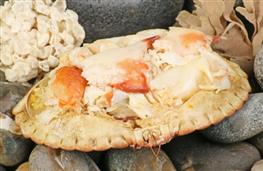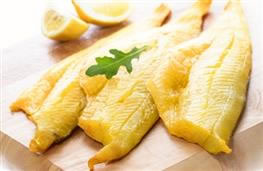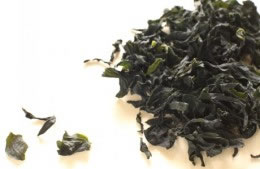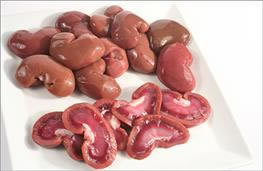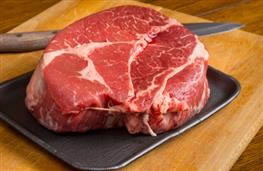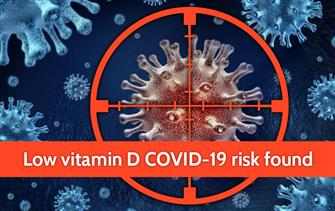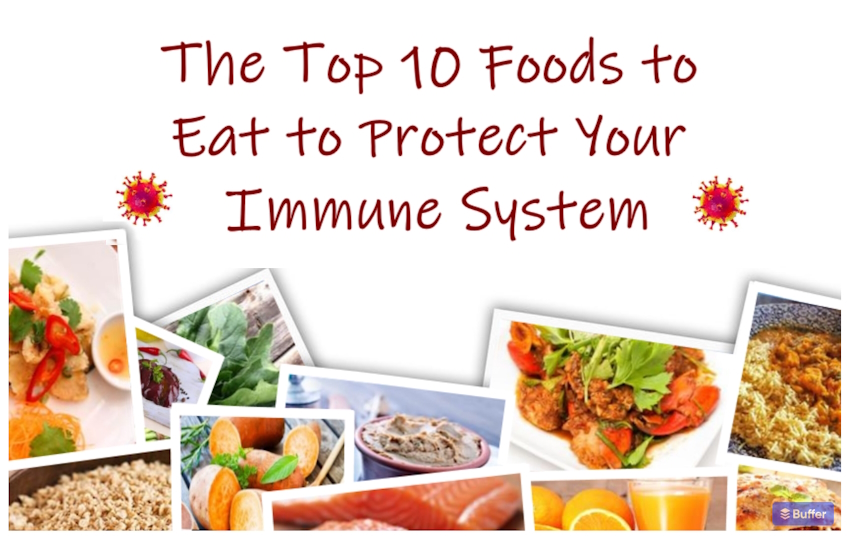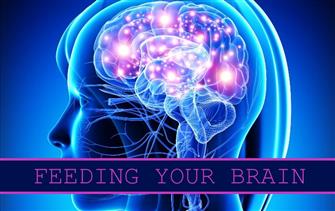Keeping your Thyroid Healthy
Discover the two nutrients important to thyroid health
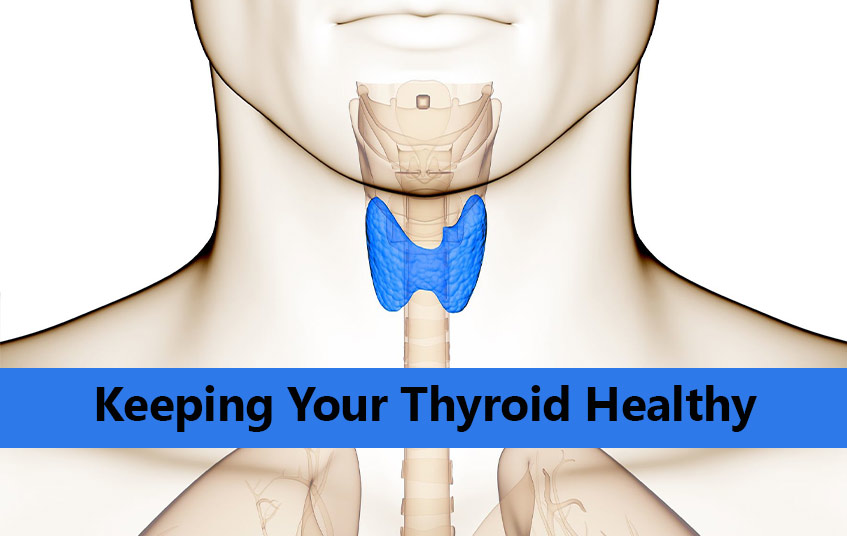
Share
Your thyroid is a small butterfly-shaped gland in your neck, just in front of your windpipe (trachea).
It is incredibly important as it produces hormones which play vital roles in regulating: the rate at which your cells produce energy, heart and digestive function, muscle control, brain development and bone maintenance.
Your thyroid also contributes to the way your body absorbs micronutrients (vitamins, minerals and phytochemicals), and gets rid of toxic substances.
Overactive and Underactive thyroid
An overactive thyroid, also known as hyperthyroidism or thyrotoxicosis, is where your thyroid gland produces too much of the thyroid hormones.An overactive thyroid can affect anyone, but it's about 10 times more common in women than men, and typically happens between 20 and 40 years of age.
Common signs of an overreactive thyroid are nervousness, anxiety and irritability, mood swings, difficulty sleeping, persistent tiredness and weakness, sensitivity to heat, swelling in your neck from an enlarged thyroid gland (goitre), an irregular and/or unusually fast heart rate (palpitations), twitching or trembling and weight loss.
An underactive thyroid gland (hypothyroidism) is where your thyroid gland does not produce enough hormones.
Common signs of an underactive thyroid are tiredness, weight gain, sensitivity to cold, dry hair and skin, muscle aches and feeling depressed.
Hypothyroidism is the most common.
So how do you make sure your thyroid is healthy?
There are 2 micronutrients for thyroid health that are sanctioned by the EU Food Safety Authority (EFSA). These are iodine and selenium, both of which work together to contribute to the production of thyroid hormones and normal thyroid function.Iodine
Iodine is a trace mineral and an essential part of thyroid hormones. Iodine is a crucial micronutrient for thyroid hormone synthesis and the only source is dietary.Click here to find out more about iodine.
Selenium
Selenium concentration is higher in your thyroid gland than in any other organ in your body, and, like iodine, selenium has important functions in the production of thyroid hormones.Click here to find out more about selenium.
How can you get more Iodine and Selenium in your diet?
As Iodine and selenium work together to look after your thyroid, seafood is a great way to get them both together. Don’t worry if you’re not a seafood lover we’ve got meat and veggie options as well.Crab meat is very versatile and can be made into crab cakes, served as the fish component of surf and turf, with pasta, be potted with butter and much more.
A 120g portion will give you 341% of your recommended daily amount (RDA) for selenium and 175% for iodine.
For those of you who are adventurous cooks, I used to go to restaurant where they served choux pastry (used for profiteroles), stuffed with crabmeat and topped with hollandaise sauce for a starter. It was delicious.
Cod
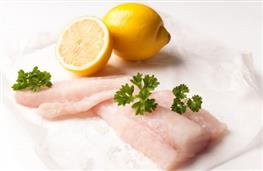
Everyone’s favourite cod is a great choice to get your dose of iodine and selenium, with a 200g (medium) portion of cod fried in a coating, (think batter or fishfingers) 😊 giving you 236% and 84% of your RDA respectively.
Smoked haddock is great in a fish pie, chowder, Florentine sauce and more.
A 200g portion will give you 125% of your selenium RDA and 212% of your iodine RDA.
With those 3 ingredients a fish pie would be a fabulous way to please the whole family and top up your thyroid protecting nutrients, plus a whole lot more. There’s a lot in this luxury version so you could leave out the salmon and prawns if you wanted to.
Not a seafood lover?
VegetariansEggs
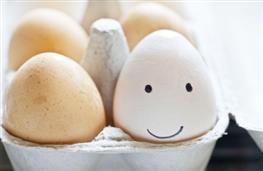
Eggs are a great way to get both iodine and selenium if you’re a vegetarian.
2 eggs boiled or scrambled will give you 46% of your RDA for selenium and 33% for iodine. Eggs are crammed with goodness, including vitamin D at 71% for 2.
Brazil nuts
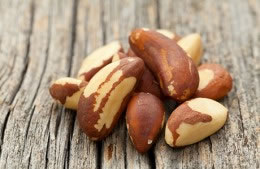
Brazil nuts are great to use in cakes where the recipe calls for nuts or how about crushing up and using as a topping on your porridge.
One handful about 20g will give you 81% of your selenium RDA.
Seaweeds like Kombu have huge amounts of iodine and regular consumption can lead to abnormal thyroid function. So, we’re going to skip that one and move straight on to wakame.
You’re probably familiar with wakame seaweed if you’re a fan of Japanese food and have tried a kaiso salad.
An average portion which is only about 2g dried or 10g fresh will give you 119% of your RDA.
Meat eaters
There are no meat ingredients that will give you both iodine and selenium in reasonable amounts, so we’ve separated them out for you.
Lambs kidneys are great in a traditional steak and kidney pudding.
100g in a pie will give you 273% of your RDA for selenium.
Chicken thighs
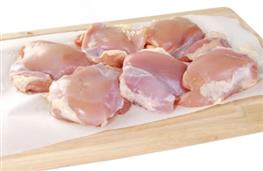
Chicken is pretty good for selenium. The thighs are a fab choice for casseroles or curries and have a more selenium than chicken breasts. If you are really not a fan of thighs, then breasts are still a good choice.
200g of chicken thighs in a casserole will give you 56% of your RDA for selenium and 200g of chicken breast grilled will give you 33% of your RDA.
Iodine
There’s not that much iodine in meat. Beef is your best choice with beef shin (used to make really slow cooked casseroles like a beef bourguignon) coming in tops. As its not really that readily available your best choice is:
A 225g portion in a casserole will give you 20% of your iodine RDA but will also give you 29% of your selenium RDA.
To get the best of both how about a great:
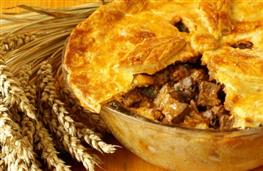
Why not combine braising steak and lamb kidneys to make this delicious steak and kidney pie. Much less fuss than a suet pudding.
And Finally
We now know that both Iodine and selenium will help to keep your thyroid functionating normally and contribute to thyroid hormone production.I’ve just given you a small sample of some of the foods available with the highest amount of both. To find more simply search for selenium or iodine and before clicking on the image, look above it and click on the green box that says Ingredient results or Recipe results.
To find out more about the foods listed just click on the name of the ingredient above.
The easiest way to ensure you’re getting enough selenium or iodine and all of the essential nutrients, in your diet, is to keep a food diary. It’s really easy with our Free for Life account. Want to give it a try, just click below?
https://www.nhs.uk/conditions/overactive-thyroid-hyperthyroidism/
https://www.nhs.uk/conditions/underactive-thyroid-hypothyroidism/
https://www.nhs.uk/conditions/underactive-thyroid-hypothyroidism/
https://www.sciencedirect.com/science/article/pii/B9780128021682000129
https://www.ign.org/cm_data/2009_koehrle_selenium_and_thyroid_bprcem.pdf
https://www.ign.org/cm_data/2009_koehrle_selenium_and_thyroid_bprcem.pdf
Now check these out
Love this? Get blogs and more in your inbox
Subscribe to receive our blogs plus each weeks featured ingredient, recipe and nutrient in your inbox
Thank you for registering

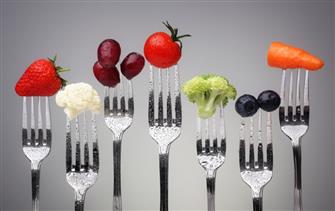 About nutrients
About nutrients
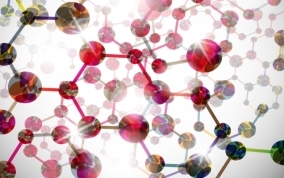 All nutrients
All nutrients
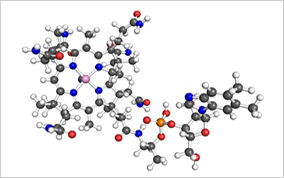 vitamins
vitamins
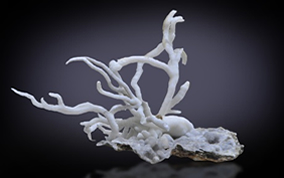 minerals
minerals
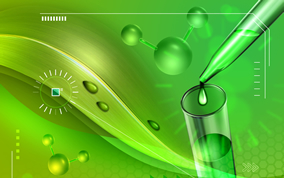 phytochemicals
phytochemicals
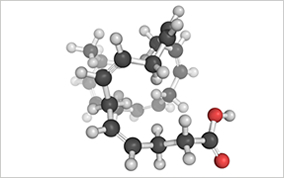 fatty acids
fatty acids
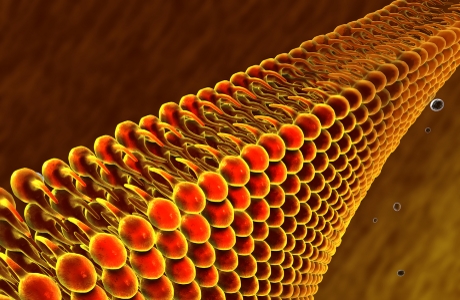 macronutrients
macronutrients
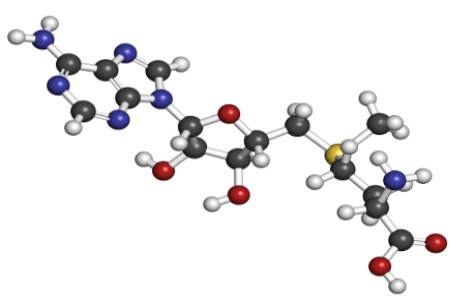 amino acids
amino acids
